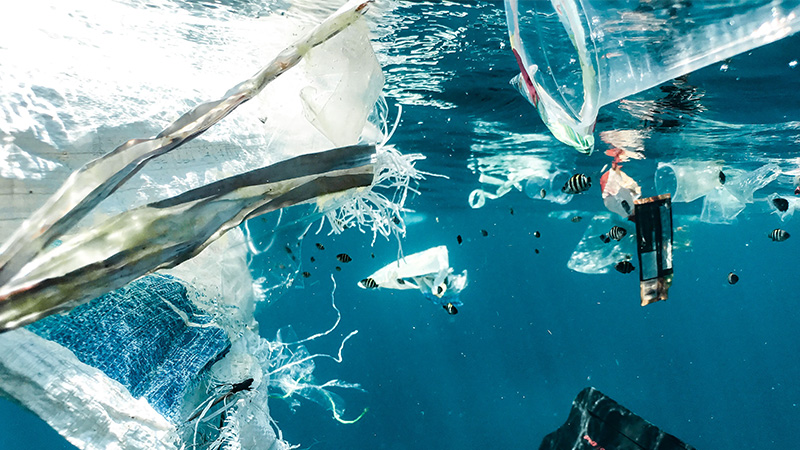Single-use plastic; are we missing the point?
by Darren Patterson
Single-use plastics. I want to start with that phrase, but I’ll leave it for now and I’ll come back to it later.
I was shopping at one of my local supermarkets, one of those which has committed to eliminating single-use plastic bags, and I noticed that, whilst they still had their plastic bags for those that had not brought their own, there were also crisp, new, heavy-duty paper bags. Bags, I assume, that customers could use if they could not face the shame of using a plastic bag and wanted to feel they were doing their bit for the environment.
And that brings me back to the start. Single-use plastics.
All too often when we use that phrase people focus on the ‘plastic’ part. And that’s natural. It’s something that’s tangible, visual, it’s something we can vilify. We can say, “If we eliminate that we’re sorted.”
This is a concept that I encounter throughout my work in waste. In fact, the very word “waste” faces the same problem.
When I talk about waste to people they think of landfills and piles of rubbish on the ground and in their bins, but for me its more than that. It’s not just a noun but a verb too. We waste time, opportunities and resources, and that’s the area that we need to focus on. By focusing on the action, the verb, we can deal with the physical problem, the noun, and become more efficient; reducing our impacts on the environment.
This is easy to say but difficult to do. Difficult because it requires change; a change in attitudes and a change in behaviour, and there is nothing more challenging than changing behaviour. We are creatures of habit and when that habit has been coupled with convenience, change can be as difficult as opening a new jar of pickles with greasy hands.
Single-use plastics. We’re back to this phrase again, and hopefully you’re starting to see my point. When we use that phrase we have a tendency to focus on the plastic part, the tangible part, the noun, but we lose sight of the main issue; single use, the verb, the action.
It’s the fact that these items have such a short life that makes their use bad. They are used from the shop to the car, the car to the house and then thrown away. A use that can easily be replaced by reusable bags. Bags that can be used hundreds of times. I have bags that are older than my children. Bags that have been used every week and have eliminated the need for thousands of single-use bags in that time.
If we fail to educate our motivated population to focus on their actions, their behaviour, and let them vilify the material, we will have lost a valuable opportunity. An opportunity to realise that the real problem here is the consumption of resources solely for convenience, and the impacts that is having.
To truly deal with the main issue of single-use plastic bags we need to focus on our actions, our behaviour, our choices. The best way to reduce this waste is to not produce it in the first place, not to switch to another material that will again be taken from the shop, to the car, the car to the house and be thrown away.
So, as I watch the customer in front of me walk out with two heavy-duty brown paper bags I realise that for some, maybe most, we’ve failed them, because we’ve focused on the material not the action, because its far easier to change the noun, than the verb.
– Darren is the Business Development Director at 3R Group. He is also the chair of WasteMINZ, the largest waste industry association in NZ; the chair of the Waste Advisory Board, a statutory board that provides advice on waste minimisation; and the chair of SIFT, a trust that provides funding to sustainability projects.







